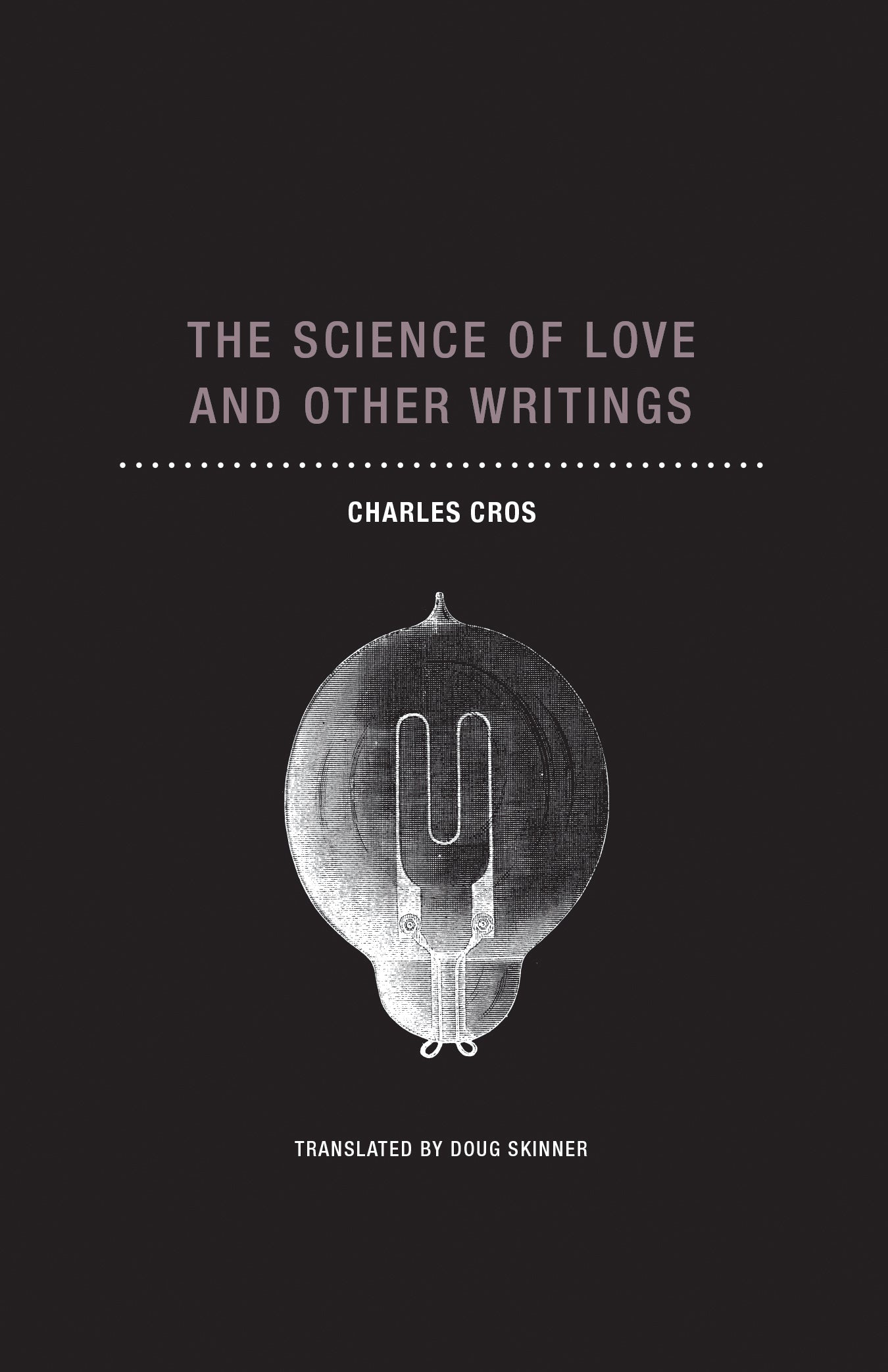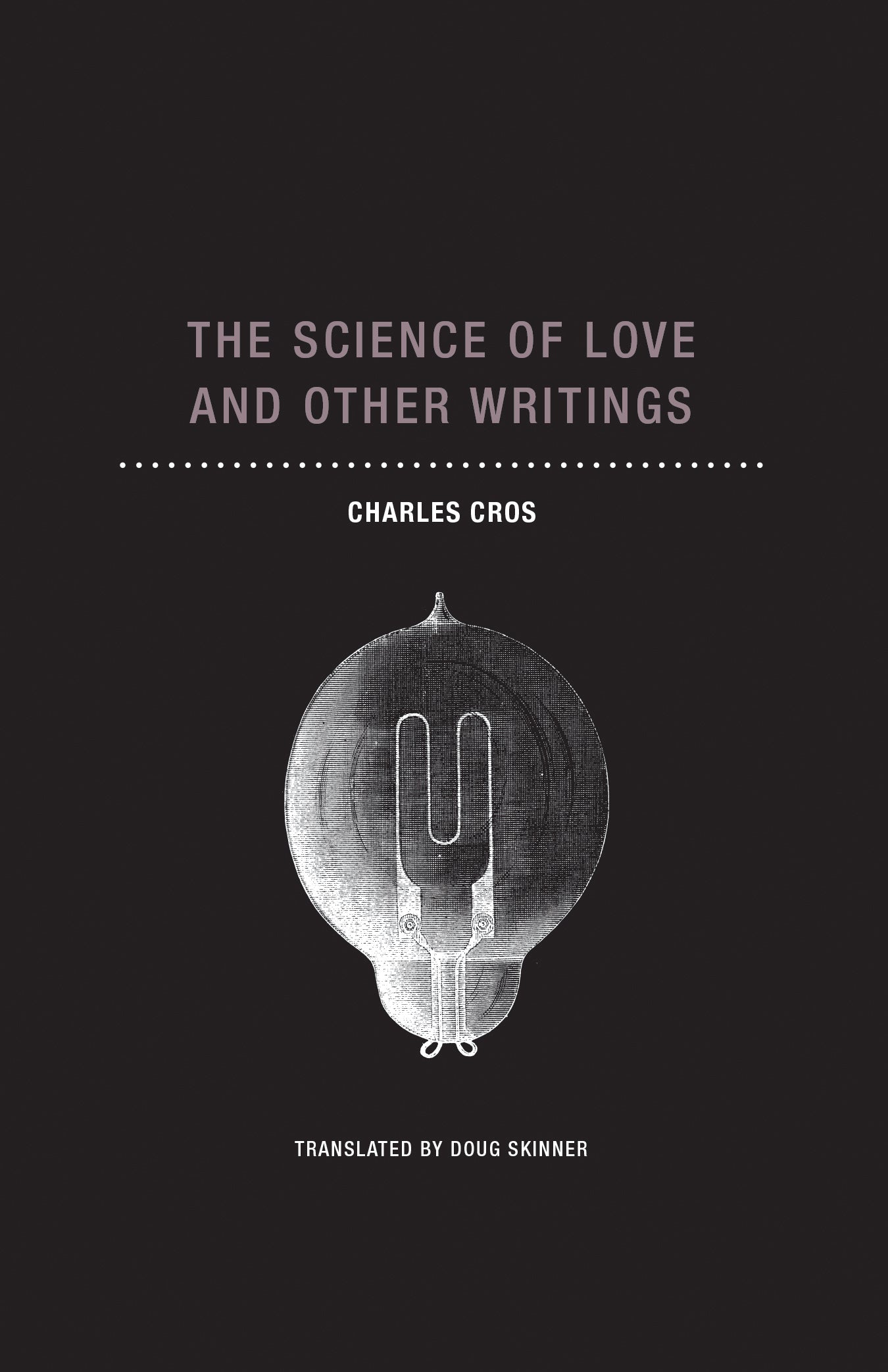The Science of Love and Other Writings
The Science of Love and Other Writings
Charles Cros
Couldn't load pickup availability
Translated, with an introduction, by Doug Skinner / March 2024 / 4.5 x 7, 160 pp. / 978-1-939663-95-5
The Science of Love and Other Writings brings together for the first time in English all the literary prose of Charles Cros. An indefinable polymath of fin-de-siécle Paris, Cros’s imagination had one foot in the literary currents of his time, and the other in the field of science. This amalgamation is fully demonstrated in this collection, which includes proto-science-fiction stories; his contributions to what was then the new form of the prose poem; a sober, if fantastical, scientific study on methods of communication with other planets; and the patent application written with his brother for a (never-built) notating keyboard.
The literary imagination he was able to bring into the field of science was matched by the humorous scientific sobriety he introduced into his literature, which he did nowhere so effectively as in the title piece, “The Science of Love”: a depiction of a young scientist’s painstakingly executed seduction of a woman for the sake of scientific analysis, utilizing litmus paper and measuring releases of carbonic acid during maximized passion. Its humor led Joris-Karl Huysmans to include it in the rarefied library of À rebours, where the College de ’Pataphysique declared “An Interplanetary Drama” to be a “canonical text.” Also included are stories such as “The Newspaper of the Future” (which presents a nineteenth-century imagining of artificial intelligence) and “The Stone Who Died of Love.”
Charles Cros (1842–1888) was as much Renaissance man as he was poète maudit. A bohemian poet who drank with Verlaine and at one point provided housing to Rimbaud, he also developed the comic monologue as a theatrical genre and invented both the gramophone (which he named the “paléophone”) and color photography (though he failed to patent either before Thomas Edison or Louis Ducos du Hauron), among other such inventions as a non-metallic battery and a musical stenographer. “The freshness of his intelligence was such that no object of desire seemed utopian to him a priori,” André Breton wrote of him, adding: “The pure playfulness of certain wholly whimsical portions of Cros’s work should not obscure the fact that at the center of some of his most beautiful poems a revolver is leveled straight at us.”
Press
“For readers both interested in science and unperturbed by the aspect of casual fugues between consenting rocks and fissures and related phenomena, The Science of Love is your book. Hats off to Doug Skinner and his relentless quest to find and translate into English unknown and little-known gems from the French humanities.”
—Tom Bowden, The Book Beat


